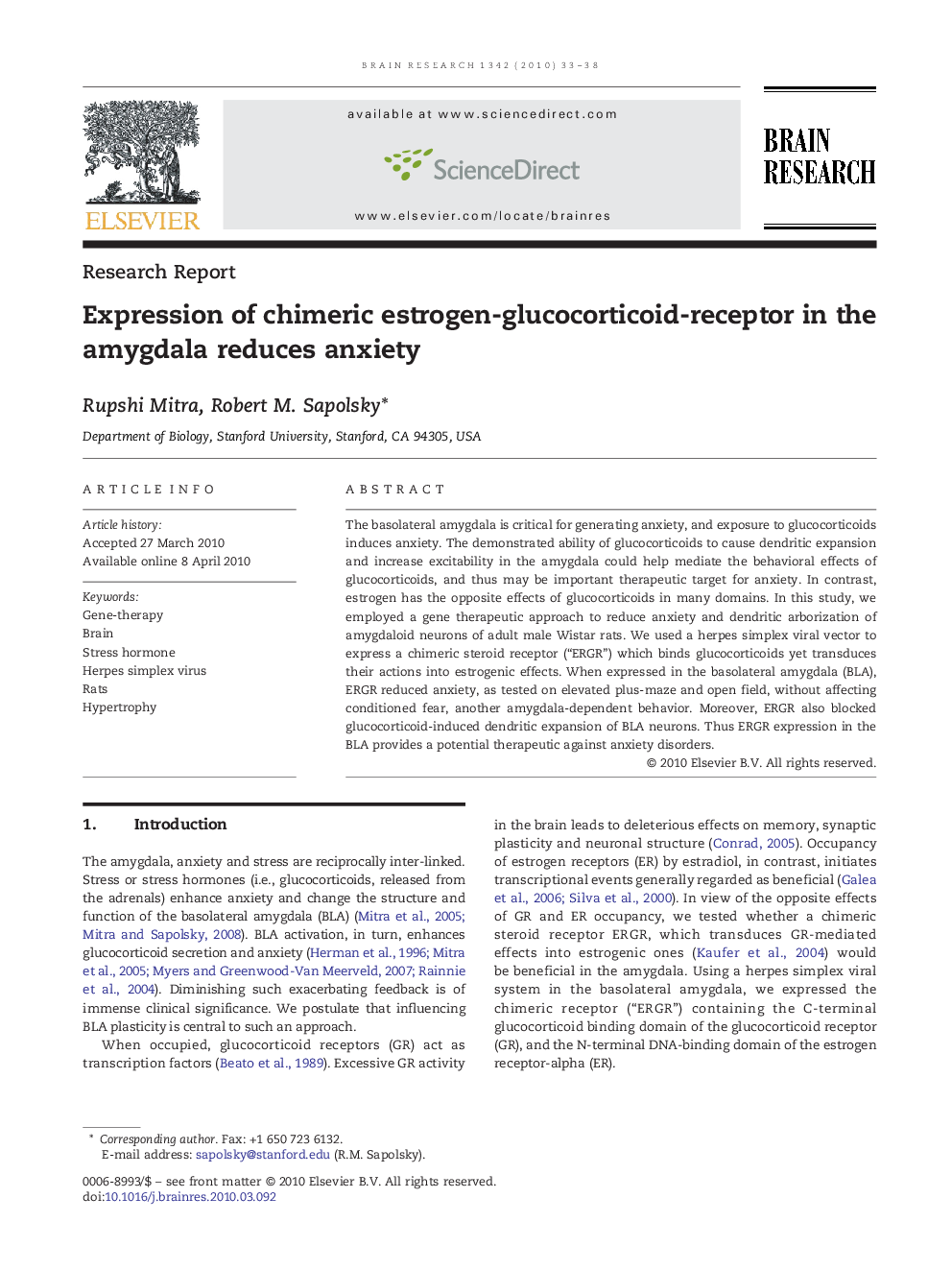| Article ID | Journal | Published Year | Pages | File Type |
|---|---|---|---|---|
| 4326845 | Brain Research | 2010 | 6 Pages |
Abstract
The basolateral amygdala is critical for generating anxiety, and exposure to glucocorticoids induces anxiety. The demonstrated ability of glucocorticoids to cause dendritic expansion and increase excitability in the amygdala could help mediate the behavioral effects of glucocorticoids, and thus may be important therapeutic target for anxiety. In contrast, estrogen has the opposite effects of glucocorticoids in many domains. In this study, we employed a gene therapeutic approach to reduce anxiety and dendritic arborization of amygdaloid neurons of adult male Wistar rats. We used a herpes simplex viral vector to express a chimeric steroid receptor (“ERGR”) which binds glucocorticoids yet transduces their actions into estrogenic effects. When expressed in the basolateral amygdala (BLA), ERGR reduced anxiety, as tested on elevated plus-maze and open field, without affecting conditioned fear, another amygdala-dependent behavior. Moreover, ERGR also blocked glucocorticoid-induced dendritic expansion of BLA neurons. Thus ERGR expression in the BLA provides a potential therapeutic against anxiety disorders.
Related Topics
Life Sciences
Neuroscience
Neuroscience (General)
Authors
Rupshi Mitra, Robert M Sapolsky,
